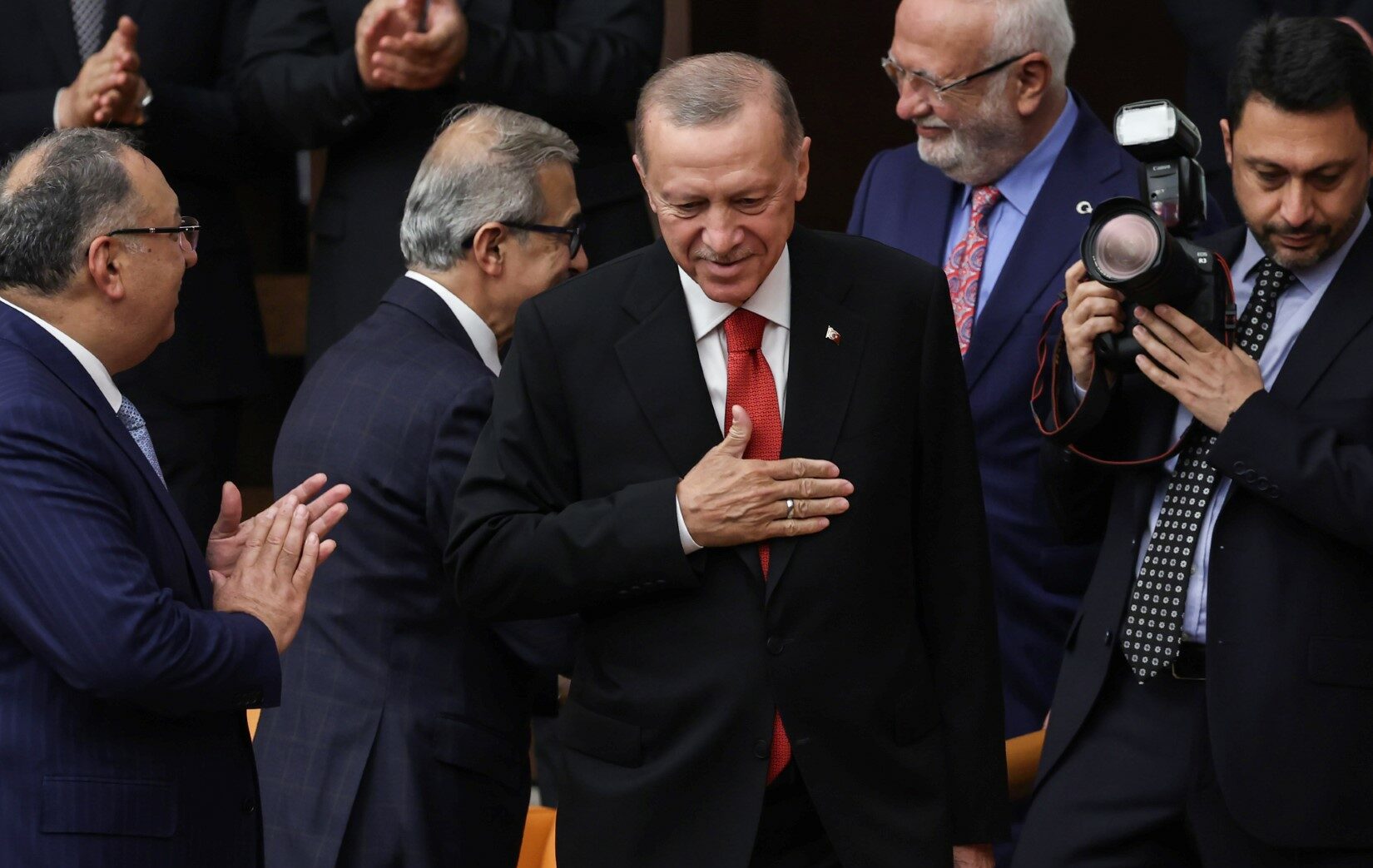Ankara, Turkey — Turkey’s Recep Tayyip Erdogan was on Saturday sworn in for a third term as president, promising to serve “impartially” after winning a historic runoff election.
“As president, I swear upon my honor and integrity, before the great Turkish nation … to work with all my power to protect the existence and independence of the state … and to fulfill my duty impartially,” Erdogan said.
Supporters in parliament gave Erdogan a minute-long standing ovation after his swearing in, while some opposition lawmakers refused to stand up.
In his oath, Erdogan also promised not to deviate from the rule of law and the secular principles of the republic founded by Mustafa Kemal Ataturk 100 years ago.
The inauguration in parliament will be followed by a lavish ceremony at his palace in the capital Ankara attended by dozens of world leaders.
Turkey’s transformative but divisive leader won the May 28 runoff against a powerful opposition coalition, and despite an economic crisis and severe criticism following a devastating February earthquake that killed more than 50,000 people.
Erdogan won 52.18 percent of the vote while his secular rival Kemal Kilicdaroglu 47.82 percent, official results show.
Turkey’s longest-serving leader faces immediate and major challenges in his third term driven by a decelerating economy and foreign policy tensions with the West.
“From a geopolitical point of view, the election will reinforce Turkey’s recent pursuit of an independent foreign policy,” said Matt Gertken, chief geopolitical strategist at BCA Research.
“This policy aims to extract maximum economic and strategic benefits from eastern and autocratic states while still preventing a permanent rupture in relations with western democracies,” he said.
“Tensions with the West will likely increase again, within that framework, now that Erdogan has a new mandate.”
Biting economy
Addressing the country’s economic troubles will be Erdogan’s first priority with inflation running at 43.70 percent, partly due to his unorthodox policy of cutting interest rates to stimulate growth.
Late on Saturday the president is due to unveil his new cabinet with media speculating that former finance minister Mehmet Simsek, a reassuring figure with international stature, could play a part.
A former Merrill Lynch economist, Simsek is known to oppose Erdogan’s unconventional policies.
He served as finance minister between 2009 and 2015 and deputy prime minister in charge of the economy until 2018, before stepping down ahead of a series of lira crashes that year.
“Erdogan’s government looks like it will pursue an orthodox stabilisation programme,” said Alp Erinc Yeldan, professor of economics at Istanbul’s Kadir Has University.
“What we see now is that the news about Mehmet Simsek and his team is greeted with enthusiasm by the markets,” he said.
Turkey’s new members of parliament started being sworn in on Friday in a first session after the May 14 election, also attended by Erdogan.
His alliance holds a majority in the 600-seat parliament.
Erdogan’s victory came against a unified opposition coalition led by Kilicdaroglu, whose future as leader of the CHP party remains in doubt following the defeat.
NATO chief visits
NATO allies are anxiously waiting for Ankara to green-light Sweden’s drive to join the US-led defence alliance, before a summit in July.
Erdogan has been dragging his feet in approving the application, accusing Stockholm of sheltering “terrorists” of the outlawed Kurdistan Workers’ Party (PKK) which is listed as a terror group by Ankara and its Western allies.
NATO chief Jens Stoltenberg will attend Erdogan’s inauguration at the weekend and hold talks with him, the alliance said Friday.
Sweden’s foreign minister Tobias Billstrom said on Twitter that “a clear message” emerged at a NATO meeting in Oslo for Turkey and Hungary to start the ratification process. His Turkish counterpart Mevlut Cavusoglu responded: “A crystal clear message to our Swedish Friends! Fulfil your commitments arising from Trilateral Memorandum & take concrete steps in the fight against terrorism. The rest will follow.”

